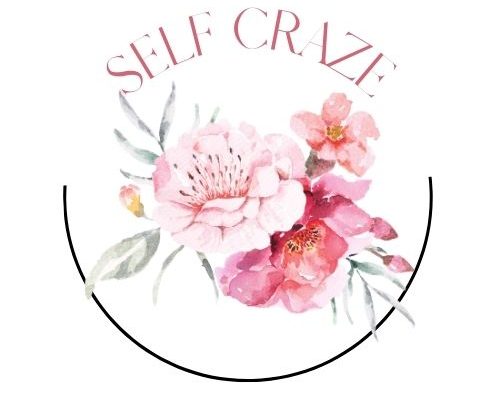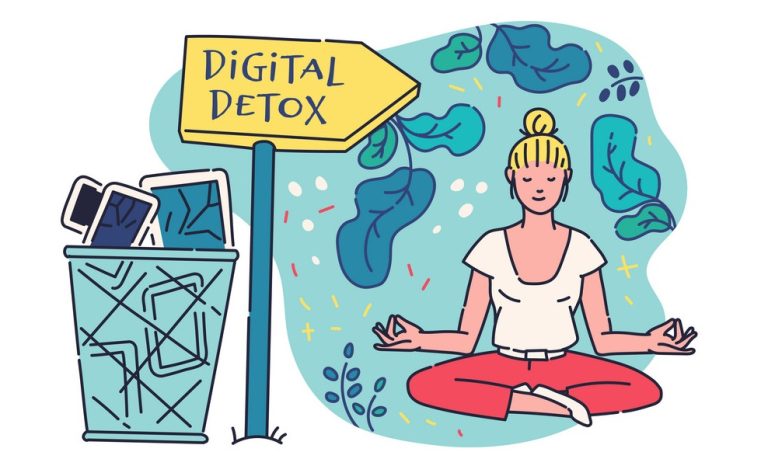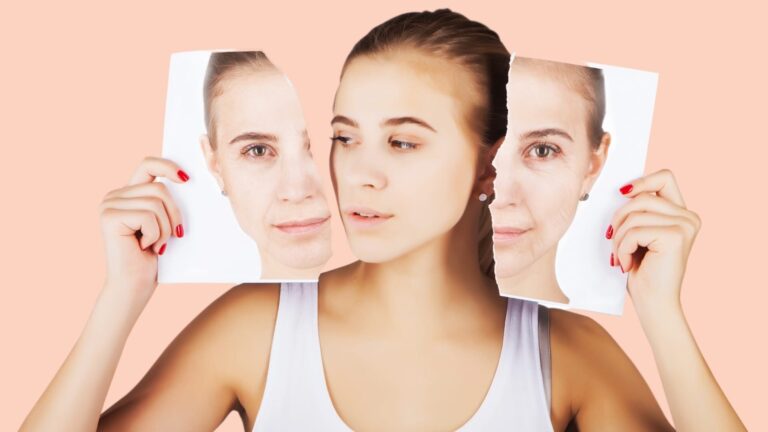“YOU…are magnificent beyond measure, perfect in your imperfections, and wonderfully made.”
Yes, you! It’s not just me saying this about self-care ideas, Abiola Abrams said it first. (1) I only quoted one of the most successful American authors to express how insecure this human race has become.
Not to be offensive, but didn’t you smirk when you read that 1st statement thinking, “Meh! I am a mess but It could be true.”

Everyone is a mess. Only the ones who prioritize themselves enough to take time out for a self care routine don’t smile in disbelief or doubt at the “magnificent beyond measure” part (Or narcissists).
It is an extremely exhausting world where keeping up the pace seems like the most important task. More often than not, we forget to keep pace with our mental and physical health requirements.
Self care is not a selfish act. It is an act of love towards yourself. Just like a mother loves her children unconditionally not just because she is wired to do so genetically, but because that’s what helps the overall development of her children.
In a very similar way, she needs to love herself, by exercising acts of self-care to keep her mind and body happy.
According to a survey, 72% of the people have reported spending more time exploring self-care ideas and doing self-care activities in the last 2 years. (2)
So let’s be honest here, it’s a trend we need to keep up with.
Without any further ado, this blog will help understand the concept of self-care, self-care ideas, and its benefits, and suggest an “ultimate self-care ideas’ checklist” for a happier you.
What Is Self Care Menu?
The World Health Organization (WHO) defines self-care as,
“The ability of individuals, families, and community, to promote health, prevent disease, maintain health, and cope with illness and disability with or without the support of a health worker.”
This is quite a thorough explanation of what self-care ideas should look like in a person. If you are still reading after this long and boring definition (it was thorough but boring), means you are determined to find your ultimate self-care checklist.
So let me try and put it in simpler words.
Self-care ideas can be anything that brings sustained joy in the long term. It involves all the necessary actions that can be taken to improve and maintain, both, your mental and physical health, and make you happier. All that does not involve drugs!
A “Self Care Menu” is a personalized list or guide of activities, practices, or ideas designed to help individuals take care of their mental, emotional, and physical well-being.
It can include a variety of self-care options like taking a walk, meditating, reading, enjoying a hobby, or even indulging in a favorite treat.
The purpose is to have an accessible reference for ways to nurture oneself, especially during stressful times or when needing a moment of relaxation and rejuvenation.
What Does Self Care Menu Look Like? Dos and Don’ts!
It is impossible to restrict everyone to a certain set of self-care ideas and expect the same outcomes.
Based on differences in personalities, everyone has their requirements and personal standards for what type of self-care activity can provide them great results.
It does not have to be self-indulging, but rather a self-loving and health-improving experience.
Let’s take this example. A monthly spa day or a weekly manicure can be very relaxing, and heavy on your pocket.
So if you can afford it, without counting it as a luxury, or having to survive on canned tuna and ramen noodles for the last week of your month, go for it.
For some people, the same would only be an act of self-indulgence, ultimately making them miserable because of financial stress. Just remember, self-care shouldn’t cost you your basic needs. Self-care ideas need not be financially hard on your pocket.
Another example of self-care ideas would be dishwashing. For some, it would be a chore (or a choke, lol!). But for others, it can be a time to connect with themselves.
I gave this very unusual example because I am the one who does that. Dishwashing is merely an excuse for me to cut off from the world and hide in the deep corners of my brain, having meaningful and solution-oriented conversations with myself. (Don’t judge!)
Just do what makes you happy without a doubt and don’t cause you emotional, physical, mental, and financial stress in the long run.
Types Of Self-Care & Their Benefits
Self-care comes in many different types. And just like one medicine cannot treat every illness (except maybe paracetamol), a single type of self-care does not satisfy all your needs. Let’s go through different self-care ideas one by one. (4)
Physical Self Care:
We put our bodies through a lot of physical stress and just like any machinery they need to be maintained and monitored regularly. We all know ‘an apple a day keeps a doctor away’. Apart from a healthy diet, physical exercise, and 8 hours of sleep are just as important to refuel your body. In the list of self-care ideas, physical self-care takes top priority.
- Incorporate Movement Throughout Your Day: Research shows exceeding recommended activity levels benefits your health. Take the stairs instead of the elevator or stretch during breaks. Even small disruptions to sedentary behavior can improve your mood and energy levels.
- Schedule Time for Relaxation Techniques: Chronic stress can hinder happiness. The American Psychological Association recommends relaxation techniques like deep breathing or meditation to decrease stress hormones and promote feelings of calm.
- Connect with Loved Ones: Social connection is fundamental for happiness. Studies show strong social ties have a positive influence on mental and emotional well-being. Make time for regular interaction with friends and family.
- Pursue Activities You Enjoy: Engaging in activities you find rewarding can enhance your happiness. Research suggests leisure activities contribute to emotional well-being and life satisfaction. Schedule time for hobbies or creative pursuits that bring you joy.

Mental Self-Care Ideas
Our brains have become victims of what I like to call “immunity disorder against unfiltered technology.” A lot of mental health issues prevail from what we feed our brain and it is important to keep a check on it or provide it a means to channel all that negative energy. Talking to friends, taking short trips now and then, or having a picnic day are all self-care ideas that can help prevent mental exhaustion.
- Limit Unstructured Tech Time: Studies suggest excessive technology use can negatively impact mental health. Establish boundaries around screen time, particularly before bed. Consider designated tech-free zones in your home to promote relaxation and focus.
- Engage in Social Interaction: Social connection is crucial for emotional well-being. Research published in the Journal of Personality and Social Psychology demonstrates the positive influence of social support on mental health. Make time for regular interaction with friends and family, fostering a sense of belonging and reducing stress.
- Practice Mindfulness Techniques: Mindfulness meditation has been shown to be effective in managing stress and improving mental clarity. Devote just a few minutes each day to focused breathing or body scan meditations. These practices can help regulate emotions and cultivate inner peace.
- Schedule Digital Detoxes: Consider periodic breaks from technology altogether. Schedule digital detox days or weekends to disconnect from screens and reconnect with yourself and your surroundings. This can significantly reduce stress and promote a sense of rejuvenation.
Social Self-Care Ideas
An extrovert may not enjoy a moment of solitude as much as an introvert. Similarly, an introvert may not be entertained by a night out in a bar as much as an extrovert. Social energies are maintained by socializing according to your personality. It is imperative to indulge in social self-care ideas to make connections and build relationships with friends and family for an optimal social life.
- Join a Club or Group: Finding a community aligned with your interests fosters social connection and belonging. Explore clubs, groups, or classes related to hobbies or passions. This can provide opportunities to meet like-minded individuals and build meaningful relationships.
- Volunteer Your Time: Volunteering offers social interaction while contributing to a worthy cause. Research shows volunteering strengthens social ties and reduces feelings of isolation [Kuo et al., 2014]. Identify a cause you care about and dedicate time to volunteering, fostering social connection and purpose.
- Plan Social Gatherings: Take initiative to connect with loved ones. Organize game nights, potlucks, or outings with friends and family. Research suggests social interaction boosts mood and well-being [Cacioppo et al., 2009].
- Embrace Different Socialization Styles: Recognize that social needs vary by personality. Introverts may prefer smaller gatherings or one-on-one interactions, while extroverts might thrive in larger social settings. Cater activities to individual preferences to ensure a positive and fulfilling social experience.
Emotional Self-Care Ideas
Emotional health has completely different needs which makes emotional self care the most unique of all. Negative emotions, if not channeled into something positive and productive, can end up destroying not only your physical and mental health but also your social life. Finding your channel is the key.
- Identify Your Emotional Triggers: Understanding what triggers negative emotions is crucial for effective management. Pay attention to situations or events that evoke negativity and develop coping mechanisms to address them constructively.
- Practice Emotional Expression: Bottling up emotions can be detrimental. Express your feelings in healthy ways, such as journaling, talking to a trusted friend or therapist, or engaging in creative outlets like art or music.
- Develop Healthy Coping Mechanisms: Find healthy ways to manage negative emotions. Techniques like exercise, relaxation exercises (deep breathing, meditation), or spending time in nature have been shown to effectively reduce stress and improve emotional well-being [Harvard Health Publishing, 2020].
- Practice Self-Compassion: Be kind to yourself. Everyone experiences negative emotions. Forgive yourself for setbacks, acknowledge your feelings, and focus on progress, not perfection.
Spiritual Self-Care Ideas
It is not about following your religion. But if that makes you fulfilled, who am I to stop. Spirituality is about “having a deeper connection with something bigger than yourself.” (5) So if you believe in a corrupted soul, feed it rightly. If religion is what brings tranquility in your life, follow it, or whatever else that does the deed.
- Spend Time in Reflection: Dedicate time for introspection. Journal about your thoughts, feelings, and experiences. Explore questions about your values, purpose, and place in the world. Reflective practices can foster self-awareness and a sense of inner peace.
- Connect with Like-Minded Individuals: Seek out communities that share your values and interests. Join spiritual groups, attend workshops, or participate in online forums. Social connection with those on a similar spiritual path can be enriching and supportive.
- Practice Compassion: Cultivate kindness and empathy towards yourself and others. Volunteer your time, perform acts of service, or simply offer a listening ear. Research suggests compassion practices promote feelings of connection and well-being.
- Explore Different Spiritual Traditions: Learn about various spiritual philosophies and practices. Read books on different religions or spiritual paths. This exploration can broaden your perspective and help you discover practices that resonate with you.
As writer and self-growth pioneer Jennifer Louden has said, “Self-care is not selfish or self-indulgent. We cannot nurture others from a dry well. We need to take care of our own needs first, and then we can give from our surplus, our abundance.”
You can learn about self-care ideas and self-love from my blog here. And if you are also on a quest to Find Your Why, join me at https://selfcraze.com/.
The Ultimate Self-Care Reading Checklist
1- The Little Book of Hygge: The Danish Way to Live Well by Meik Wiking
Embrace the Danish concept of hygge and discover a path to comfort and happiness! Wiking’s guidebook unlocks the secrets of hygge, offering practical self-care ideas to bring coziness and togetherness into your daily life.
From warm evenings by the fire to nurturing connections with loved ones, this book will help you find joy in life’s simple pleasures. “The Little Book of Hygge” is a must-read for anyone seeking to add a touch of warmth and contentment to their world.
2- The Witch’s Book of Self-Care by Arin Murphy
It blends self-care ideas with witchcraft for a unique approach to well-being. It offers spells, rituals, and DIY recipes to nourish the mind, body, and spirit.
From releasing guilt to nature meditations, this book empowers you to harness your inner magic for a happier, healthier you.
References
https://www.southernliving.com/culture/self-care-quotes
https://www.everydayhealth.com/self-care
https://www.verywellmind.com/self-care-strategies-overall-stress-reduction-3144729







